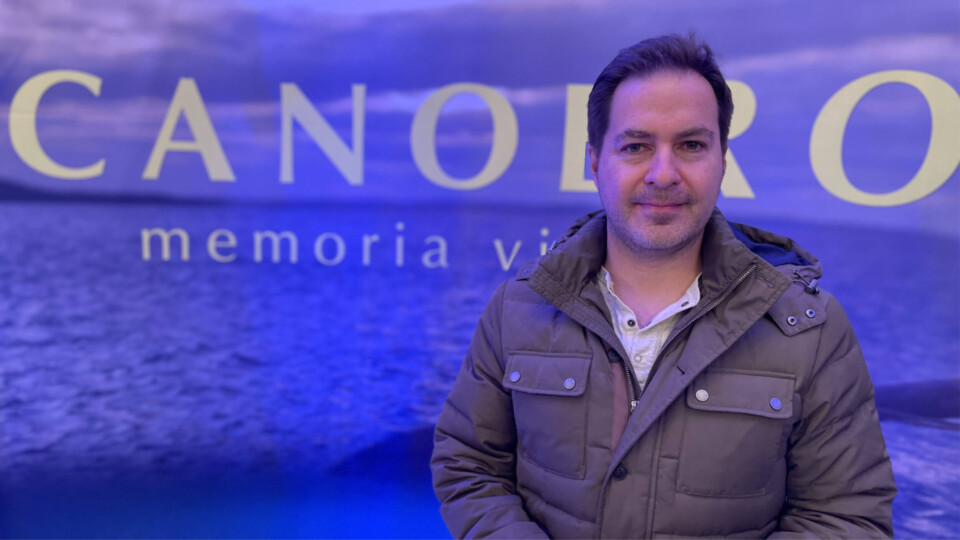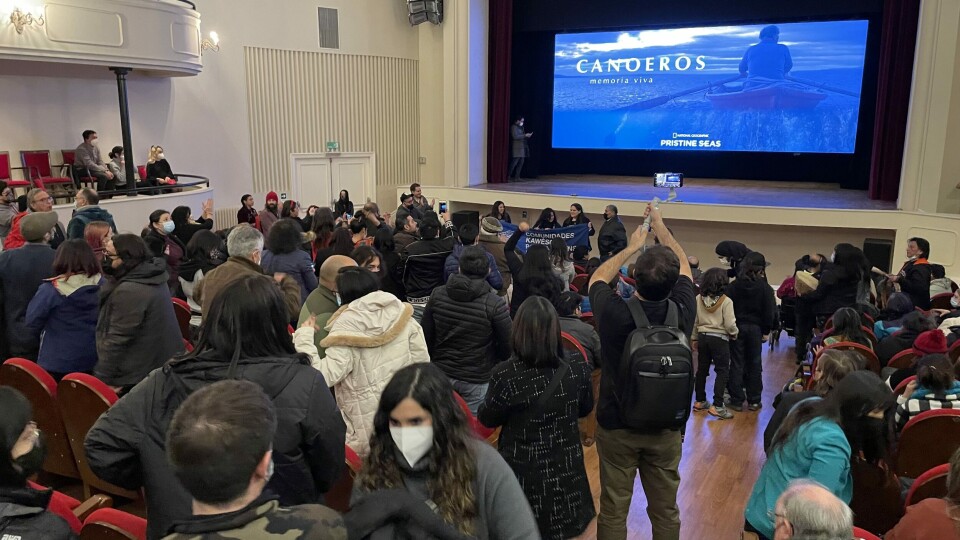
Chilean indigenous groups bid to evict salmon farms
Indigenous communities in the Magallanes region of southern Chile are to ask the government to convert a marine reserve into a national park as a means of excluding salmon farms from the area.
Their announcement was made after the premiere of a National Geographic documentary called Canoeros: Memoria Viva (Canoeists: Living Memory – watch a trailer here) which claims salmon farms threaten to destroy the homeland, food source, and way of life of the indigenous Kawésqar and Yagán peoples.
In 2019, the Chilean state created two protected wild areas in the area of the Patagonian channels. One is the Kawésqar National Park, which comprises 2,842,000 hectares of islands, glaciers, continental terrain and forests, and the other is the Kawésqar National Reserve, which comprises 2,628,000 hectares in the sea.
Higher protection
The difference is not just whether it is land or water. A national park has a higher legal level of protection, while a national reserve allows the development of different activities, including salmon farming.
In fact, in the Kawésqar National Reserve 67 concessions have been granted to salmon farmers and another 80 permits are in process, according to a National Geographic documentary, which premiered in Punta Arenas in the far south of Chile.

No industry voice
The one-hour documentary criticises salmon farming for its environmental effects and analyses the situation from the perspective of the Kawésqar and Yagán communities that oppose salmon farming in their ancestral territories. The salmon industry is not given the opportunity to put its point of view.
The salmon farms in the Kawésqar National Reserve were established before it was declared a protected area. However, for their permanence there must be a management plan for the area that incorporates salmon farming, an instrument that is still in the process of being prepared by the National Forestry Corporation. This leaves salmon farmers in a precarious situation.
Departure of farms
Canoeros: Memoria Viva has been produced by Pristine Seas, an initiative to show the public the cleanest and wildest marine areas on the planet. The director of the Pristine Seas initiative for Latin America, Alex Muñoz, said he hoped that the documentary will help prompt decisions that speed up the departure of salmon farming from the Kawésqar reserve.
Muñoz would like to see the total disappearance of the industry, arguing that there are other activities that can provide as much or more employment than salmon farming and mentioned tourism, artisanal fishing and science as examples.
The makers of the documentary present the industry as a threat, but do not give space for any representative of salmon farming to express an alternative point of view.
Defined by the State
Following the premiere, the Magallanes Salmon Farmers Association reacted through a statement.
“It is relevant to clarify that salmon farming works where the State designated it, going through rigorous environmental evaluation processes. In this industry, the State defines when, where, how and how much can be produced, and the location of the concessions is the result of a social agreement with the communities.
“Specifically in the case of the Kawésqar National Reserve, the salmon farmers occupy less than 1% of the maritime domain and were there before that space was considered a protected area.”























































